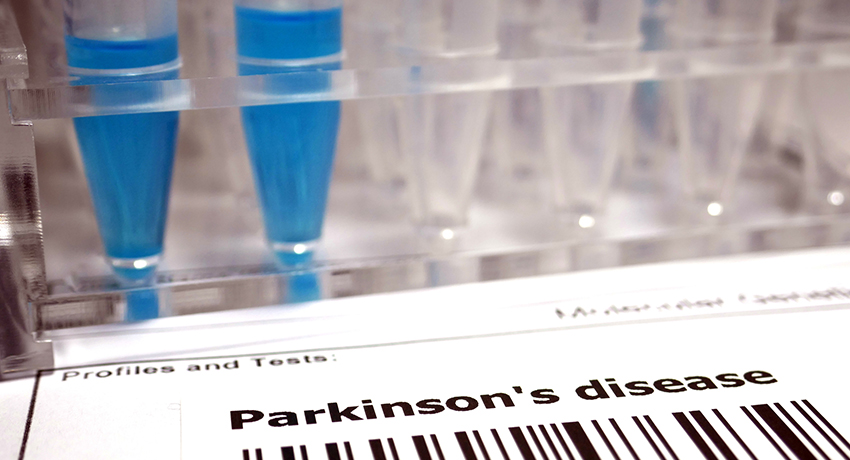Identifying genes through genetic testing could help physicians be more precise in their diagnoses. Some people who experience strokes, for example, may develop symptoms that mimic Parkinson’s disease, a progressive disorder of the nervous system. Other conditions with similar symptoms include inflammatory disorders, neurotoxin-induced syndromes, and other neurodegenerative diseases. Parkinson’s disease affects several areas of the brain that may lead to slow movement, slow thinking, tremors, stiffness, difficulty walking, and other non-motor symptoms.

“Genetic testing for Parkinson’s disease is important but not unanimously embraced by medical experts,” said Elsa Rodarte Rascon, MD, a movement disorder specialist at UT Physicians Neurosciences Neurology – Texas Medical Center. “It was less than 30 years ago, in 1996, that the first gene known to be highly associated with causing Parkinson’s disease was identified.”
Reasons to pursue genetic testing
Genetic testing can be a powerful tool in health care, but needs to be approached with a suitable mindset. The presence of a particular gene doesn’t always correlate to getting the disease. This plays a role in understanding who should undergo genetic testing for Parkinson’s disease. This is the second most common neurogenerative disorder following Alzheimer’s.
Who should consider genetic testing? People with these conditions or scenarios might want to consider it:
Recurrence risk
What is the risk in the family to develop Parkinson’s? Basically, it’s understanding the likelihood that a hereditary trait present in one family member will develop into Parkinson’s disease for another.
“If you know what mutation you have, you can be more specific in searching for clinical trials and even medications that might help a particular type of Parkinson’s,” said Rodarte Rascon, assistant professor of neurology with McGovern Medical School at UTHealth Houston. “Some gene mutations can be associated with more cognitive problems than others.”
Ethnicity
Rodarte Rascon said individuals with adult-onset Parkinson’s have a higher likelihood of having certain gene mutations, depending on their ethnicities. Ashkenazi Jewish and Northern African Arabs are two examples, she said. However, she advised caution with assumptions in multicultural populations such as Houston’s, or historically mixed populations, such as Hispanics.
Family history
Roughly 10% of people with Parkinson’s disease will have a family history of someone who has Parkinson’s disease in their family, according to Rodarte Rascon. Digging into details within the family, such as age of onset or neurodevelopment problems, can provide additional guidance.
People under the age of 50
Those with young-onset Parkinson’s disease would be good targets for genetic testing, according to Rodarte Rascon. She also recommends this age group undergo genetic testing when they have family members who are affected.
Understanding beyond genetics
Researchers believe it’s a combination of genetic and environmental factors that cause Parkinson’s disease. Some of these factors relate to head trauma, certain occupations, pesticides, and chemicals such as trichloroethylene, which is found in dry cleaning.
“While there are some high-risk, high-penetrance mutations, in general you need additional environmental factors to contribute to aging genetic and cellular changes to develop the disease,” Rodarte Rascon said. “The more mutations we find in a single gene and in different genes associated with Parkinson’s disease, the more we’ll start to tilt toward thinking of it as a polygenic disease, meaning multiple genes influence it.”
For those who test positive for Parkinson’s disease, the Parkinson’s Foundation identifies exercise as one way to lower their risk of developing Parkinson’s.
“Exercise would be the one thing that could delay onset and progression of Parkinson’s disease,” Rodarte Rascon said.
Taking action
People interested in exploring genetic testing for Parkinson’s disease have a few options. Rodarte Rascon said direct-to-consumer testing is available, as well as joining a clinical trial, where they test for free.
“It’s always an individual decision, but if I see a strong family history, I definitely recommend it,” Rodarte Rascon said. “And I reassure them that we will be there, and there’s going to be follow up.”
On the flip side, she emphasized the importance of counseling before and after the results. This isn’t usually provided by direct-to-consumer testing. She said it’s a conversation that needs to occur.
“I tell patients they may want to ask their children before we discuss results as to whether they want to know,” Rodarte Rascon said. “I want to make sure there is a lot of transparency before it’s disclosed so that everybody is happy in the end.”



